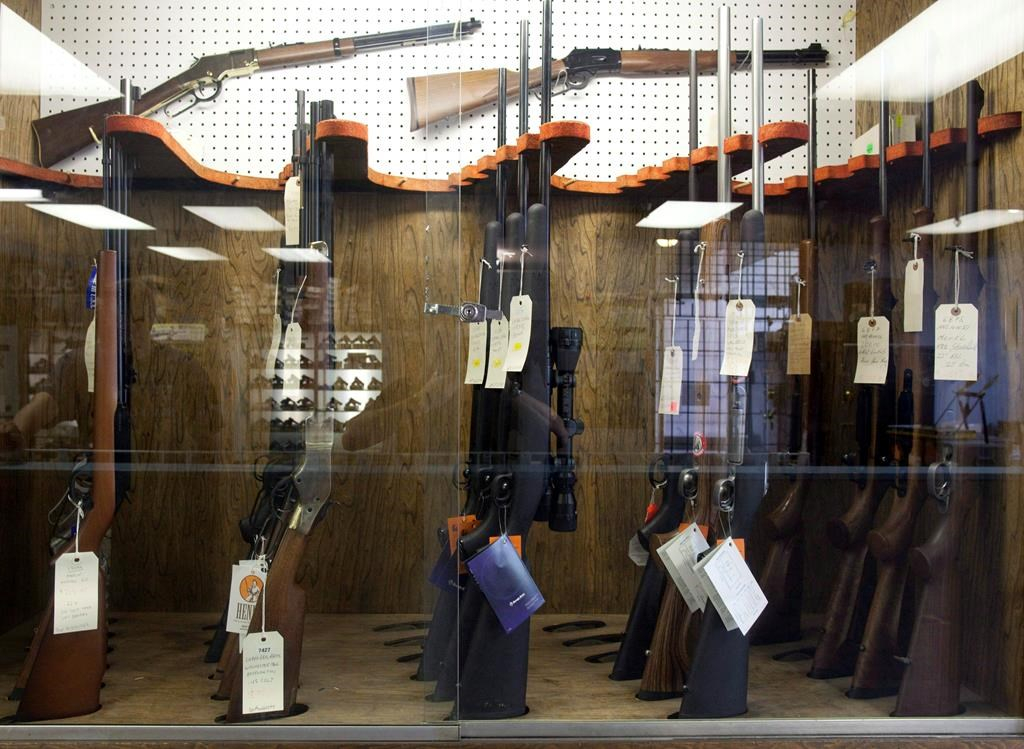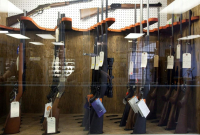Support strong Canadian climate journalism for 2025
He's the Liberal MP for a large, rural Ontario riding with lots of gun owners, but Bob Nault says he is not worried about a voter backlash over the government's new firearms bill.
The Conservatives say the legislation would unfairly target law-abiding hunters and target shooters with fresh measures.
Nault, however, sees nothing in the bill that could stir up the sort of controversy that erupted over the universal long-gun registry in the 1990s — a fight he remembers well.
The latest legislation will have no major impacts on legitimate firearms owners, Nault, 62, said in an interview. "I think this is going to be put to bed fairly quickly."
Not if the Conservatives have any sway.
Since the bill's introduction last month, Tory MPs have called the move to tighten controls on the sale and tracking of firearms the creation of a new national long-gun registry.
The bill would require retailers to keep records of firearms inventory and sales for at least 20 years, a measure intended to assist police in investigating gun trafficking and other crimes. It would also require a gun seller to ensure a buyer's licence is valid prior to the transaction.
"By going to the store level as opposed to the home, the Liberals are trying to bring in the registry by a back door," Conservative MP Erin O'Toole said in the House of Commons. "In several Parliaments in the past we saw that it did not work, it did not hit crime, it cost hundreds of millions of dollars and it targeted law-abiding people as opposed to lawbreakers."
The Conservative government dismantled the long-gun registry, a Liberal initiative that mushroomed into a costly computer boondoggle and stoked resentment in the firearms community.
The Liberals are quick to note the new plan to require commercial retailers to keep sales records would revive a measure that existed from 1979 until 1995, when universal registration of guns essentially replaced the store ledgers. Most merchants already record sales for safety and liability reasons and because it affects their insurance, the Liberals say.
As for greater scrutiny of sales, it's the buyer's licence, not the gun, that's being verified, and no information about the firearm is exchanged, they add.
The Conservatives are using the firearms bill as "a wedge issue" to capitalize on the wariness of rural residents, said Nault, who won the northern Ontario riding of Kenora by just 498 votes in the 2015 election.
But he prefers to view the latest federal effort to control firearms as one step on a long path that stretches back to the late 19th century.
Nault, a gun owner whose father taught him to shoot as a youngster, was one of the MPs who provided advice to the government about what the Liberal caucus was hearing in the mid-1990s as Allan Rock, then justice minister, pushed ahead with the long-gun registry.
The current bill is nowhere near as far-reaching, Nault said. As of late last week, he had heard from 45 constituents with concerns about the legislation in his sprawling riding that covers one-third of the province.
Among the reservations: a measure that would restore the authority of RCMP experts to classify firearms without political influence, repealing cabinet's authority to overrule Mountie determinations, and another that would roll back some automatic authorizations to transport restricted and prohibited firearms, such as handguns and assault weapons.
"As I've said to my colleagues, of course we'll lose some votes in rural Canada, because whenever you talk about firearms, people naturally get upset about it," Nault said.
But he insisted the bill is "quite balanced" and will have "virtually no impact" on 98 per cent of gun owners.
He stressed the importance of a provision that would expand the scope of background checks on those who want to acquire a gun. Instead of just the five years immediately preceding a licence application, personal history questions would cover a person's entire lifetime.
"In Canada, owning a firearm is a privilege, not a right," Nault said.
"Hopefully people will start to see this more as a non-partisan issue."





Comments
All the information gathered on the vehicles and properties that all Canadians, (not only we firearms owners) buy, own and sell is also recorded and kept for eons.
Other than the unjustified cost, the Firearms Registry was a good regulator of protecting the safety of Canadians and law-abiding, responsible firearms owners. No legislation will be a panacea to the social ills related to gun violence and illegal activities.
"Ownership and usage restrictions" help keep firearms out of undesirable hands. It IS a non-partisan issue.